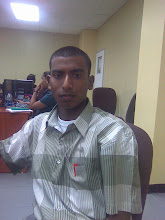The Model Teacher enrolls in education by:
The concept of mentoring as a tool in the development of young people is becoming more and more popular and commonplace. Mentoring is classically defined as a young person is inducted into the world of adulthood with the help of a voluntarily accepted older more experienced guide, who can help ease the young person through that transition via a mixture of support and challenge (Hamilton, 1991; Freedman, 1995). I would argue that fundamental to this process is the younger person learning not just from the experiences of the older person, but also learning and being inspired by the older person his/herself. The intimacy and dynamic caused by the interaction of two persons giving the mutual respect necessary in the context of mentoring, will more often than not lead to the younger person relating not just to the information and experiences transmitted by the older person, but the actual essence of the older person, and this can be a potent ingredient for the development of the younger person.
Interestingly, Kate Philip suggests that there are many different styles of natural mentoring models in operation besides the classic one as defined. These include peer mentoring, unofficial adults, friend to friend and group or team mentoring (Hendry and Philip 1996) (see Philip on mentoring and young people and Jean Rhodes (2001) on mentoring programmes in the US). It is possible to suggest from these observations, that role models are not just those in positions of authority or increased age/experience. Young people can choose their role models from any and every context including their peers. This is clearly seen in peer-led informal educational contexts such as peer-led youth clubs and movements, and can and should impact on our policy when facilitating these institutions.

No comments:
Post a Comment